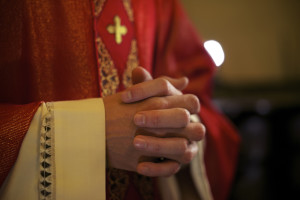
The Catholic Church has been taking a lot of heat for its stance on birth control and abortion in the wake of the Zika virus. In a rare concession, Pope Francis allowed that birth control measures “could be permissible” in light of the virus causing serious birth defects. In the South American countries affected heavily by the virus, Catholicism is the main religion. Thus, the declaration made huge waves in the international community.
In America, the situation may be slightly different. According to Pew Research, about two-thirds of self-identified Catholics in the United States “actually reject the prohibition on contraception.” Thus, the declaration may not change how Americans are dealing with procreation if they are traveling to countries where the Zika virus is a concern.
Michigan Catholic Church Extends Health Benefits
Michigan has some of the best anti-discrimination laws on the books. The Elliott-Larsen Civil Rights Act prohibits discrimination based on “religion, race, color, national origin, age, sex, height, weight, familial status, or marital status.” Not many states include weight and height in their non-discrimination policies. However, what’s missing is the LGBT community. Many municipalities have local ordinances, but there is no state mandate for equal rights for the LGBT community.
Even so, the Michigan Catholic Conference recently updated its policies concerning health benefits and domiciled partners. Employees can now add an adult to their policy for medical and dental insurance. To qualify, adults must be over 18 and be financially interdependent with the employee. The church officials point out that this could not just be a same-sex partner, but it could also be siblings or relatives who live together to share expenses.
The MCC is quick to point out that the Catholic Church isn’t sanctioning same-sex relationships, it is just following federal law. The new benefits are not based on the relationship, but on residence. It’s an interesting way to follow the law as dictated by the United States Supreme Court and yet still comply with its own doctrine.
Standing Up With Atheists
Bishop Declan Lang, chair of the Catholic Bishops’ Conference Department for International Affairs, recently wrote, “The Catholic community in England and Wales has a role to play in ensuring that the government maintains this position and continues to speak out when people are imprisoned, tortured or killed on account of their atheism.”
His position came out of the case of a Bangladesh blogger who was murdered because of his atheistic beliefs. Other atheists in the country have since been killed or imprisoned. Many have fled in fear. Lang also stated that compassion should not be linked to faith. On the day his words were published, four Catholic nuns who gave service to the disabled and elderly in Yemen were killed by gunmen. No group has formally taken responsibility for the act, but it is suspected that Islamic extremists are guilty. These nuns served the community, regardless of faith.
Changing Social Policy in Light of Current Events
In another announcement, Pope Francis told followers that the Church did not want blood money. Dirty money was not welcome as an offering to God. He was talking about money that was earned from the labor of mistreated or exploited employees. It’s a call to the social conscience of those who are Catholics. One might wonder if this edict will cause the church to lose money or if it will better the treatment of exploited staff.
The Catholic Church has had its share of negative publicity, but these changes make one think that it can move into the 21st century and become more inclusive while following its own doctrine. As Michigan changes its policies to match federal law, maybe other dioceses can follow suit.

